Despite being highly vocal creatures, crickets are quite defenseless against most predators. Determining what eats crickets can help reduce their numbers.
Common cricket predators include frogs, spiders, and lizards. Birds, salamanders, and bats also love to eat crickets. And humans in many countries eat crickets as good source of protein.
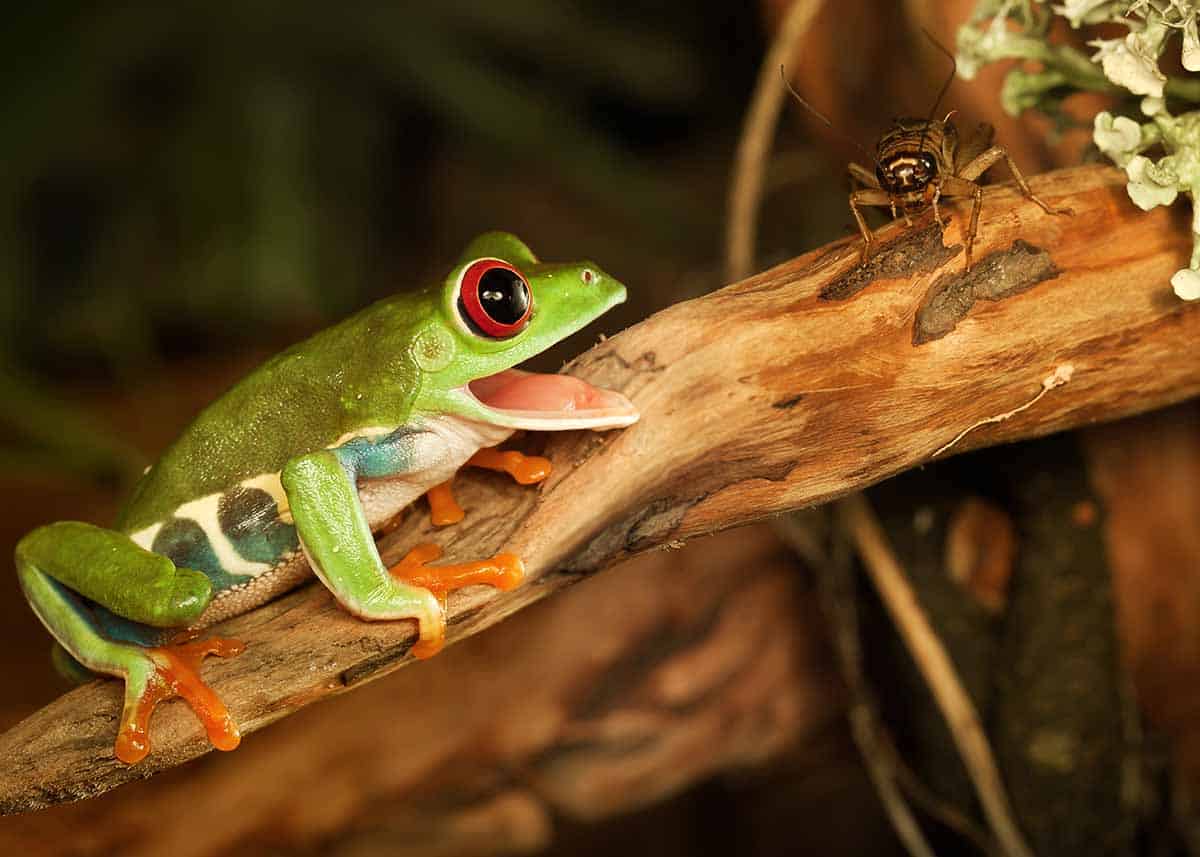
Attracting cricket-eating animals is one way to control cricket populations. You can also catch excess crickets in your house and yard. Here are seven ways to trap crickets.
Table of Contents
What Eats Crickets: 12 Animals
Here are some common creatures that eat crickets.
1. Insect-Eating Birds
Crickets are a significant food source for many birds.
Birds that eat insects, including crickets, are:
- Cardinals
- Bluebirds
- Sparrows
- Wrens
Insect-eating birds provide a cheap and eco-friendly way of getting rid of crickets. The birds eat crickets for their nutritional value and high protein content.
If you notice crickets in your garden, try attracting birds, and they will reduce the problem.
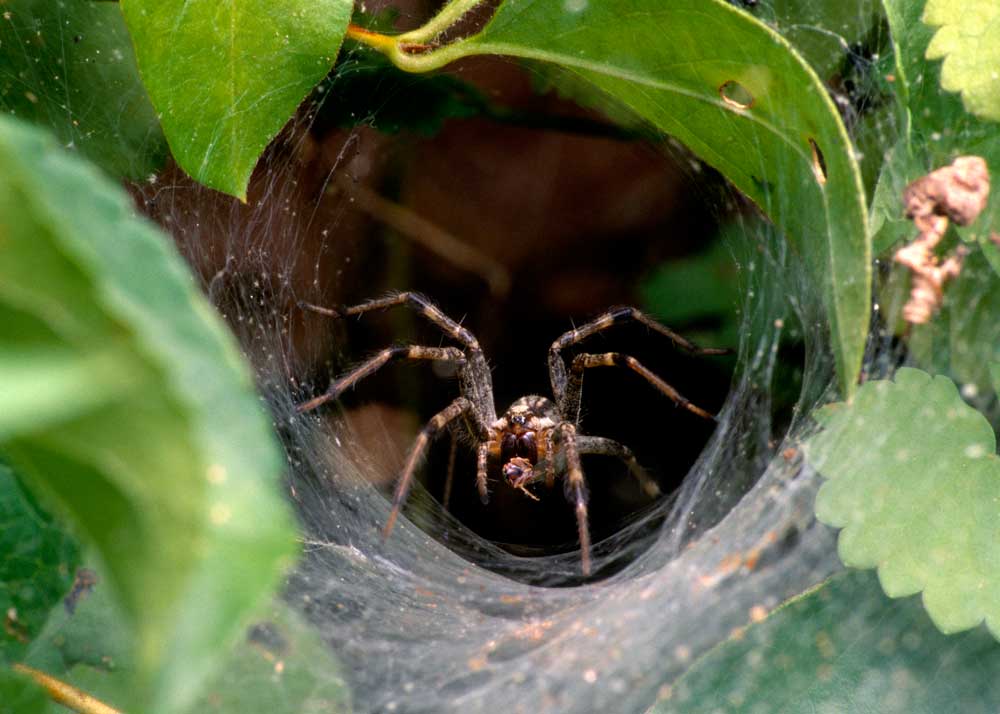
2. Spiders
Spiders are prolific insectivores because they can eat up to 800 million tons of insects annually. These insects include crickets.
Spiders can use their webs to trap crickets. If that doesn’t work, spiders can blend well with their environment and pounce on their prey when they get close enough.
Some spiders don’t wait for spiders to come to them. Wolf spiders are hunters who track their prey with night vision and then attack and feed on them.
Not all species of spiders eat crickets. And spiders only eat crickets they have hunted or killed themselves. Serving your pet spider a dead cricket will not do any good.
Have too many ants? Here are 28 animals that eat ants.
3. Lizards
Lizards use their elongated tongues to catch and eat crickets.
If you have a pet lizard, you can feed crickets to your lizard. Lizards have specially adapted features that help them eat crickets, such as teeth on the upper and lower jaws. And very sticky tounges.
When my daughter was young, she had a couple of tiny anole lizards. We bought feeder crickets for them, and they loved to catch and eat them.
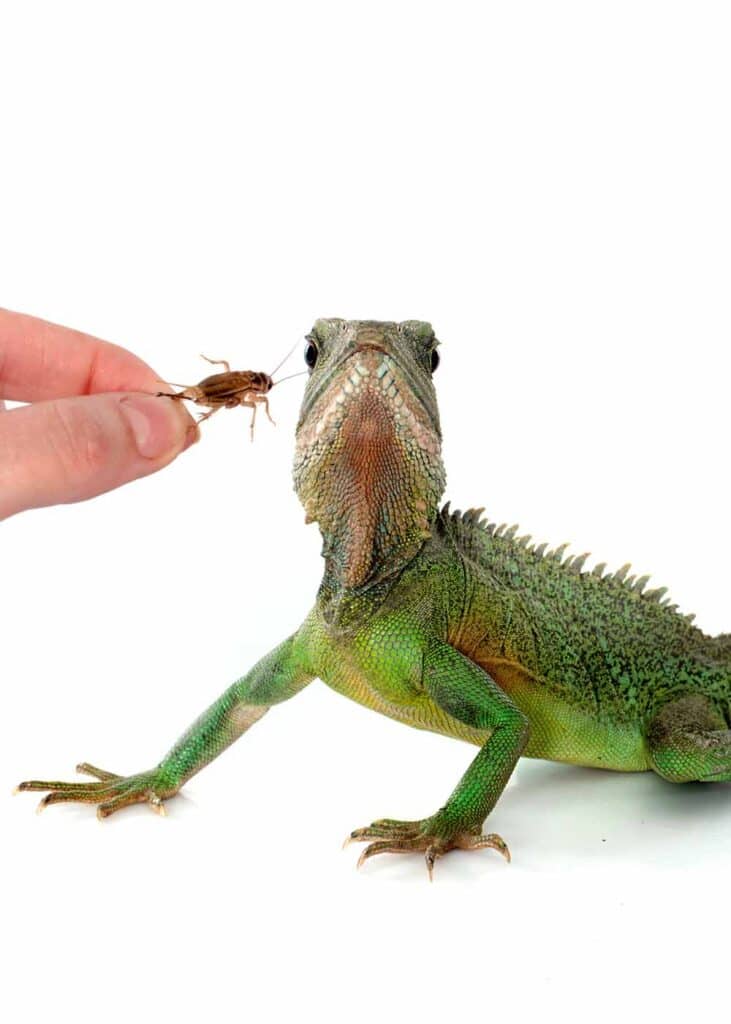
4. Bats
Bats are insectivores, and crickets make up part of their diet. Bats’ hearing abilities make it easy to find and eat crickets.
Bats serve as effective pest control because of the volume they can consume.
5. Rats
Crickets are a good source of protein for crickets. You can feed your pet rat crickets from the pet store or ones you catch in the garden.
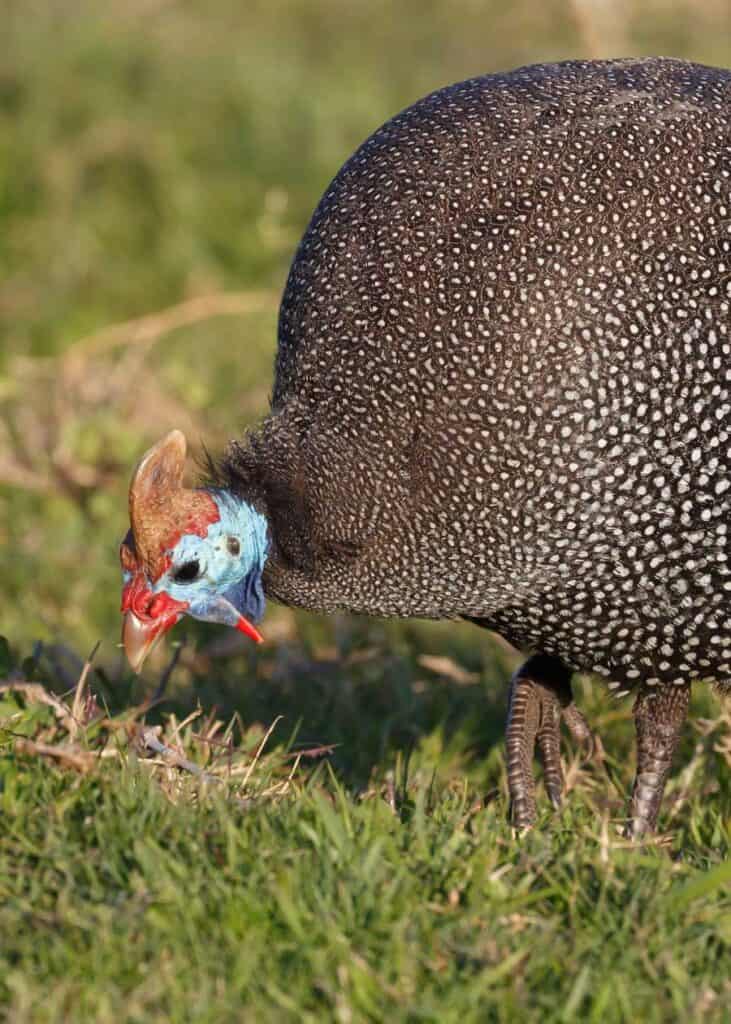
6. Domestic Birds
Domestic livestock like chicken, turkey, and guinea fowl can eat crickets. You can provide domestic livestock with crickets or let them forage for them in the garden.
Crickets are a good source of protein and have a high nutritional value, which is good for domestic livestock.
7. Shrews
Shrews are also insectivores, and crickets are one of their main prey. Shrews have a great appetite and eat approximately 90% of their body weight daily. Shrews live in woodlands and have a great sense of smell, allowing them to detect crickets easily.
Shrews are active day and night, and prey, such as crickets, provide them with the energy they need. Shrews are great at pest control because they eat grasshoppers, moths, and wasps.
8. Frogs
Considered the largest predators of crickets, frogs have unique features that make eating crickets easy. For instance, a frog’s tongue was designed for catching crickets and depositing them into the mouth.
Frogs can only prey on crickets that are smaller in size. Larger crickets pose a risk of impaction to frogs. If you have a pet frog, consider feeding it crickets that are small in size.
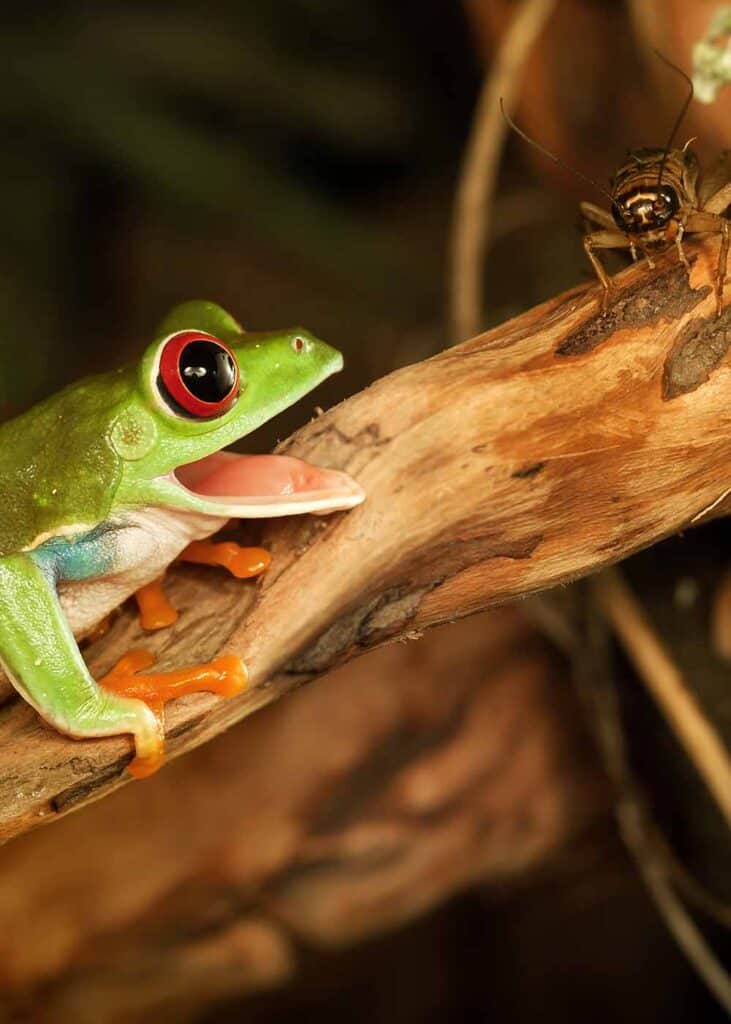
9. Mantis
The praying mantis can eat crickets due to its spine-covered front legs, which they use to capture prey. Mantis will only eat crickets they have caught or hunted themselves.
Mantis are great at camouflage, which gives them an advantage when hunting crickets and other small insects.
10. Toads
Toads are another amphibian capable of eating crickets. If you have a pet toad, consider making crickets a part of their diet.
Adult toads can consume between 4 to 6 crickets in one sitting. But they will only eat the crickets if they are alive.
11. Snakes
Small snakes can survive on a variety of small insects, including crickets. There is a snake that feeds exclusively on crickets in the Yucatan Peninsula (Symphimus mayae).
Larger snakes, such as pythons or boas, don’t bother with catching or eating crickets.
12. Salamanders
Adult salamanders commonly found on land will eat crickets and other small insects, such as grubs and buffalo worms.
Salamanders have long tongues that can stick to prey when hunting and often use them to capture nearby crickets.
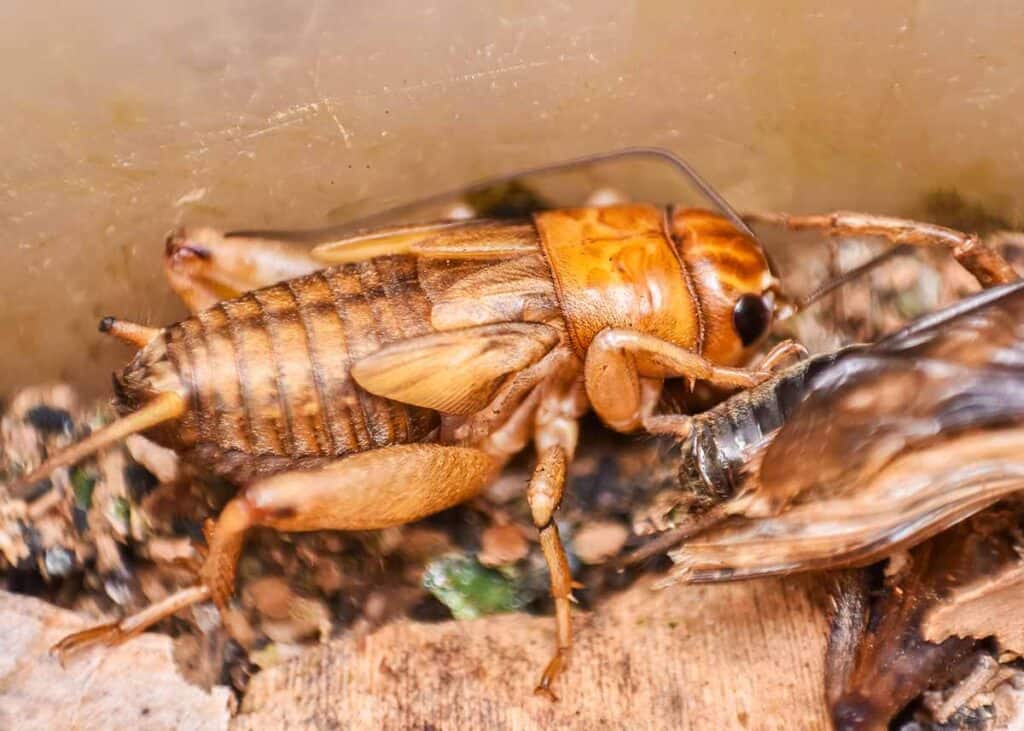
Learn more about camel crickets.
Frequently Asked Questions About Cricket Predators
What eats a cricket? Here are some FAQs
Can plants eat crickets?
Yes, there are plant species capable of eating crickets. Carnivorous plants, such as the Venus Flytrap, can eat crickets.
Can humans eat crickets?
Yes, crickets are suitable for human consumption. Crickets are a great protein source. Some people believe they have a higher protein content than chicken.
What is a cricket’s lifespan?
Crickets have a lifespan of about 90 days. But they can go for over a year or even two without predators.
About Crickets
Crickets live off a diet of small insects and fruits but can sometimes eat dead animals. Heres the guide to what crickets eat.
There are a hundred species of crickets spread across the United States. You will find crickets in forests, swamps, and marches. Crickets prefer living in tropical or humid regions where they can easily access food.
Keep Reading: Are Insects Animals? 5 Factors
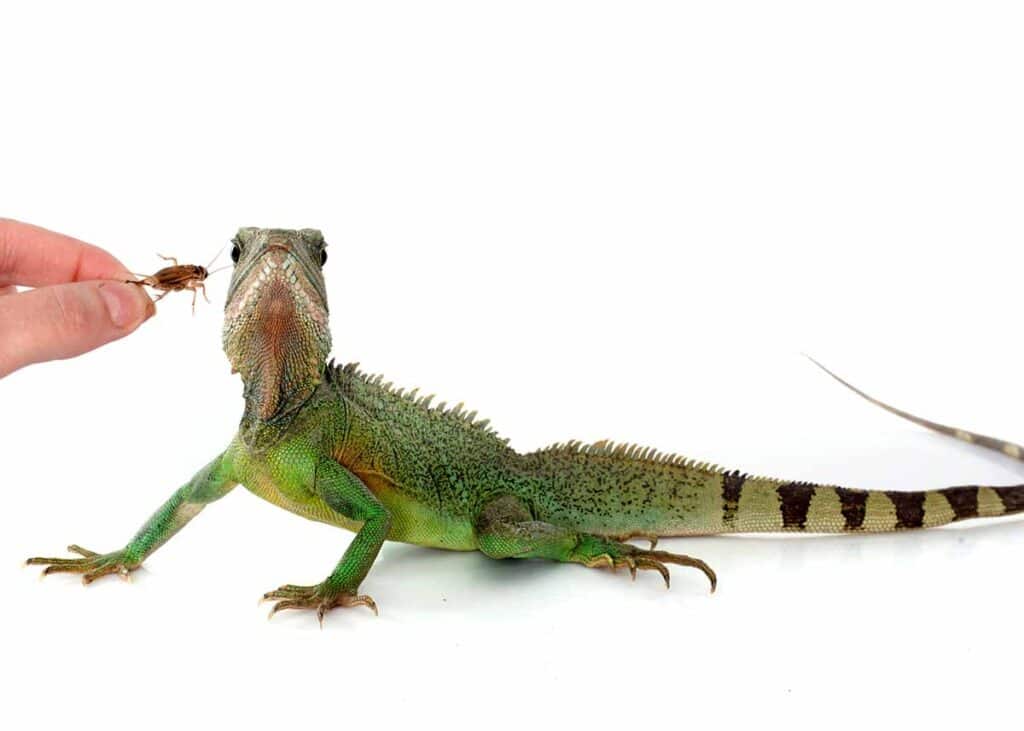
Here are common predators of wasps and hornets.
Your Turn
Crickets are interesting and somewhat irritating insects. But there are easy and cost-effective ways of getting rid of them. Introduce any of their predators, such as frogs, into their ecosystem.
What works for you? How do you handle excessive cricket populations?
- About the Author
- Latest Posts
Bryan Haines is a co-founder and writer at The Buginator. And is working to make it the best resource for taking back the outdoors from biting, stinging pests.
He also blogs about travel at Storyteller.Travel and photography at Storyteller Tech. Bryan is a partner at Storyteller Media, a publishing company he runs with his wife, Dena.
